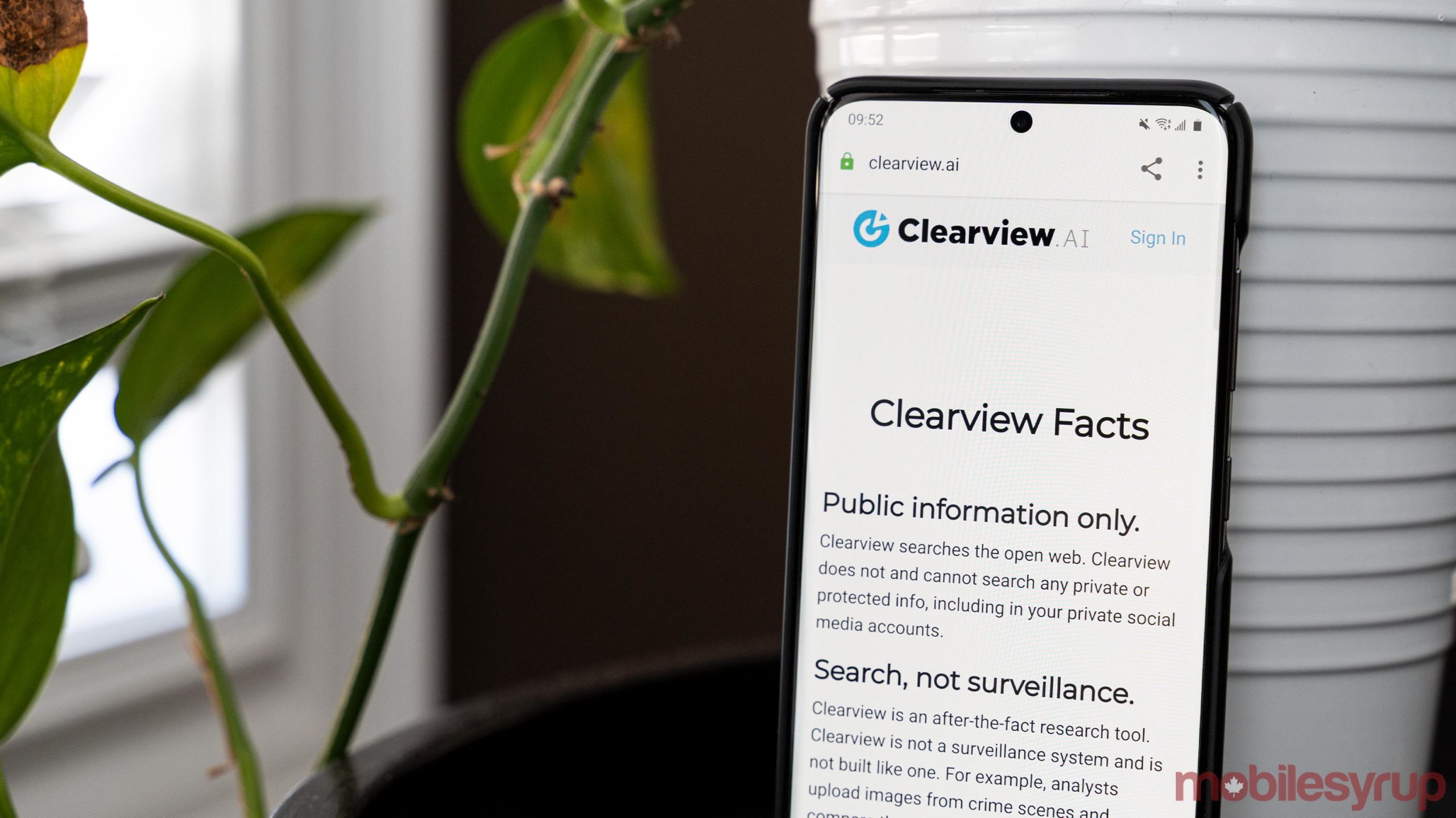
Clearview AI is allowing Canadians to find out if their images are stored in its database, but they won’t be able to ask for them to be deleted, as reported by the CBC.
The company’s website says that “you have the right to request that Clearview AI provides you with copies of your personal data.” It then provides you with an email that you can send your request to. You also have to send in a headshot that would be used for the search.
Clearview AI’s privacy policy indicates that people can ask for their images to be deleted from the database, but only under certain circumstances based on local data protection rules. There are forms for people who live in some locations, like California and Britain, for example, to request that their images be deleted.
The CBC reached out to Clearview AI and asked if Canadians could ask for their data to be deleted from the database, and the company’s CEO replied saying: “we process privacy requests for opt-out and data access we receive from Canadian citizens.”
This statement seems to suggest that Canadians can request for their data to not be sold to other companies, but the question about whether the data can be deleted remains unanswered.
The Privacy Commissioner of Ontario, Brian Beamish, says that the company should give Canadians the option to have their data removed from the database “given that Clearview obtained people’s images without their consent.”
The company is currently being investigated by a number of provincial privacy commissioners along with the Privacy Commissioner of Canada.
Clearview AI says it only gathers images that are publicly available, and compiles them into a searchable database to help law enforcement. It uses images scraped from social media and other websites to cross-reference uploaded images of people. The system reportedly has three billion photos on its database.
Earlier this year it was revealed that several police departments in Canada, including the RCMP and OPP, had used Clearview AI’s controversial facial recognition technology.
You can read the CBC’s full report here.
Source: CBC News
MobileSyrup may earn a commission from purchases made via our links, which helps fund the journalism we provide free on our website. These links do not influence our editorial content. Support us here.


